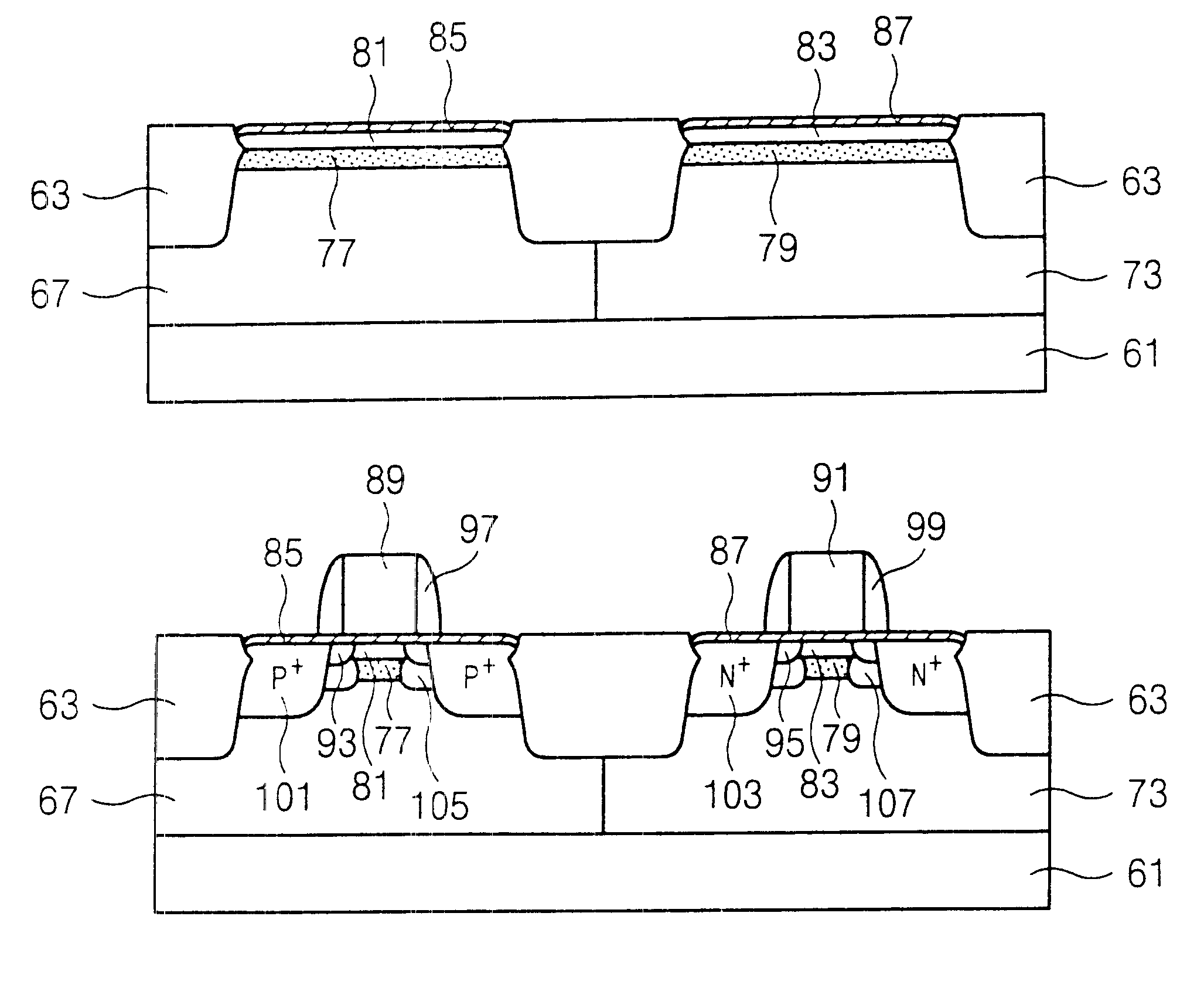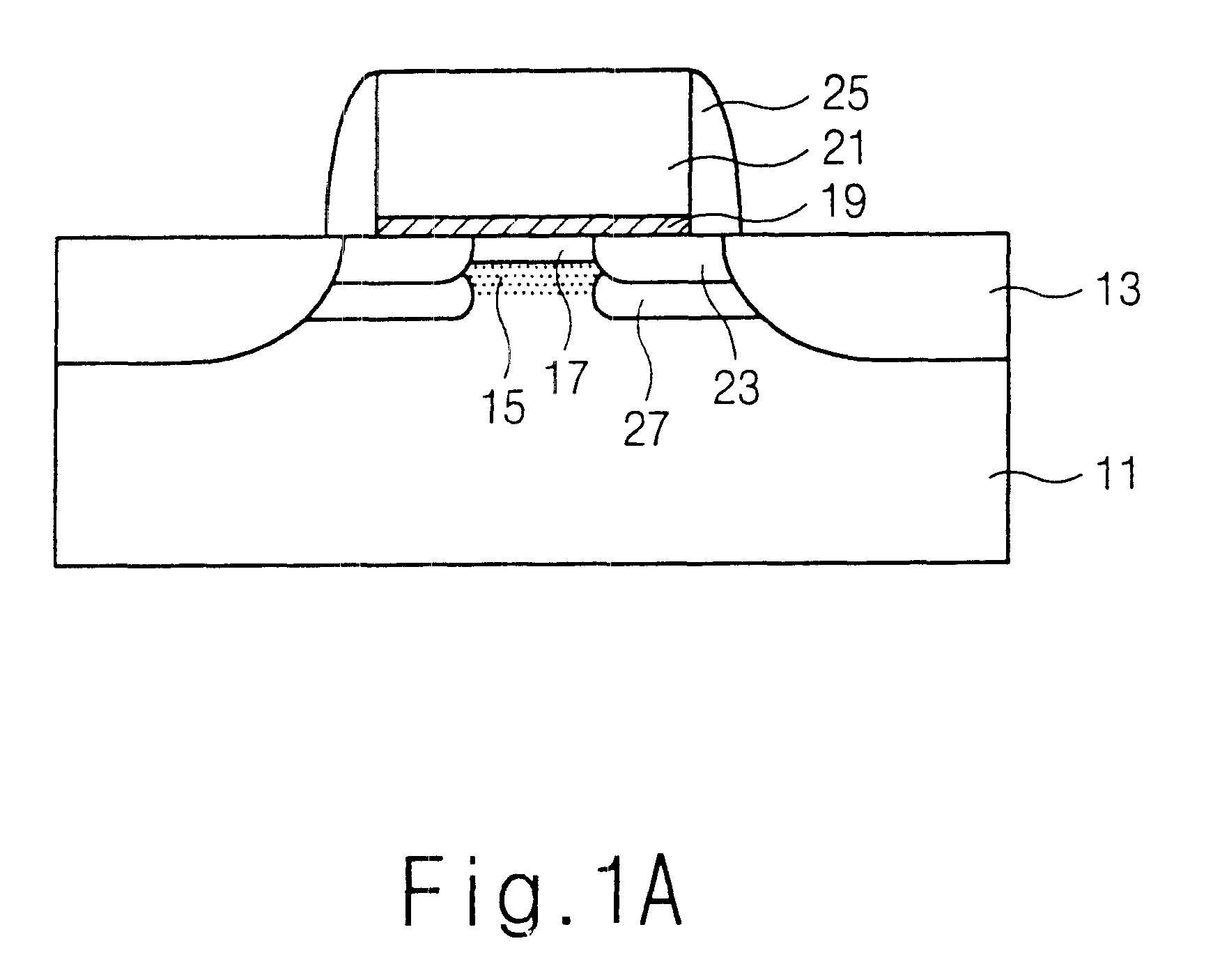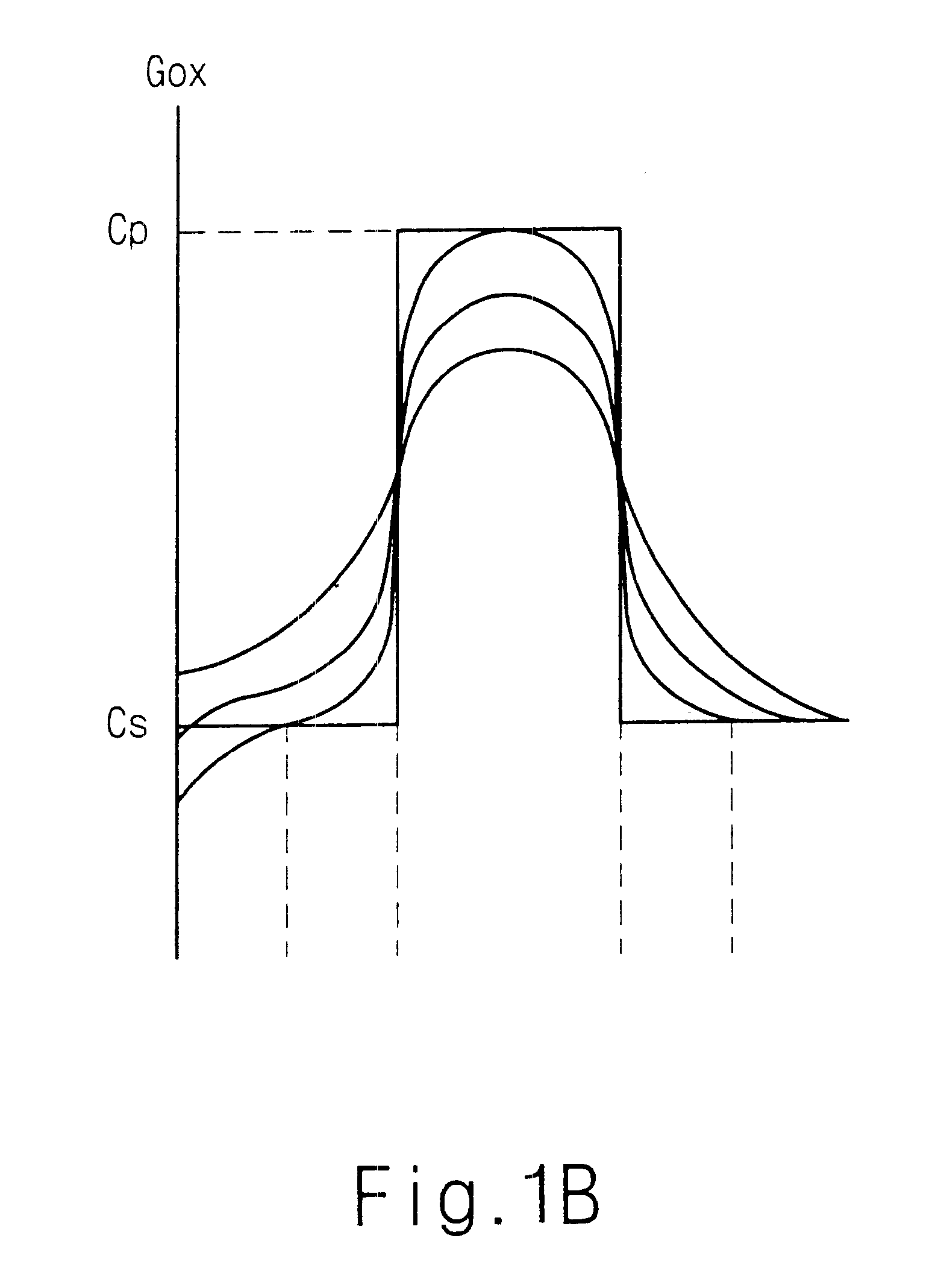Method for forming transistor of semiconductor device
a semiconductor device and transistor technology, applied in the direction of transistors, semiconductor devices, electrical appliances, etc., can solve the problems of less than 30 nm channel depth, inability to detect the presence of dopants in the channel, and the surface roughness of the substrate is aggravating, so as to achieve the effect of high integration density of the semiconductor devi
- Summary
- Abstract
- Description
- Claims
- Application Information
AI Technical Summary
Benefits of technology
Problems solved by technology
Method used
Image
Examples
Embodiment Construction
Preferred methods for forming a transistor of a semiconductor device will now be described in detail with reference to the accompanying drawings.
FIG. 1a is a schematic cross-sectional diagram illustrating a transistor having an ultra-shallow super-steep-retrograde (SSR) silicon epitaxial (Si-Epi) channel. Referring to FIG. 1a, the transistor comprises a semiconductor substrate 11, a stacked structure of a gate insulating film 19 and a gate electrode 21 disposed on the semiconductor substrate 11, an insulating film spacer 25 disposed on the sidewalls of the stacked structure, a source / drain region 13 and a source / drain extension region 23 disposed on the semiconductor substrate 11 at both sides of the stacked structure, a punch stop 27 disposed below the source / drain extension region 23, a channel layer 15 disposed between the source / drain extension regions 23, and an epitaxial channel layer 17 disposed on the channel layer 15 under the gate insulating film 19. Here, a channel depth ...
PUM
| Property | Measurement | Unit |
|---|---|---|
| depth | aaaaa | aaaaa |
| energy | aaaaa | aaaaa |
| temperature | aaaaa | aaaaa |
Abstract
Description
Claims
Application Information
 Login to View More
Login to View More - R&D
- Intellectual Property
- Life Sciences
- Materials
- Tech Scout
- Unparalleled Data Quality
- Higher Quality Content
- 60% Fewer Hallucinations
Browse by: Latest US Patents, China's latest patents, Technical Efficacy Thesaurus, Application Domain, Technology Topic, Popular Technical Reports.
© 2025 PatSnap. All rights reserved.Legal|Privacy policy|Modern Slavery Act Transparency Statement|Sitemap|About US| Contact US: help@patsnap.com



